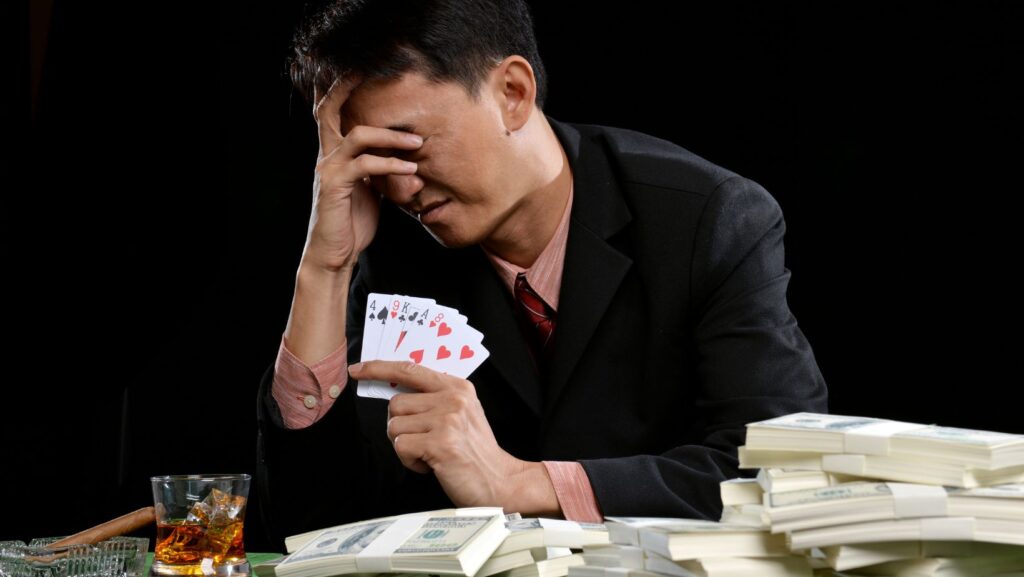Started playing casino games in bed last spring. Convenient—already comfortable, phone charged on the nightstand, easy to play a few spins before sleep. Seemed harmless for the first week.
Three months later, I couldn’t fall asleep without opening a casino app first. Lying in bed triggered an automatic urge to gamble. My brain had formed such a strong association between “bed” and “casino” that the bedroom itself became a gambling cue. Sleep quality tanked. I’d lie awake thinking about bonuses, replaying sessions, planning next deposits—all because I’d trained my brain to associate my bed with gambling excitement instead of rest.
That’s when I learned location matters more than I realized. Where you gamble shapes how your brain responds to that environment, and using your bed creates associations that destroy sleep patterns.
How Location Associations Form
NineCasino operates under Uno Digital Media B.V. with Curacao eGaming license, offering a three-part welcome package totaling €450 + 250 free spins (100% to €150 + 150 spins first deposit, 55% to €150 + 100 spins second, 100% to €150 third), plus 20 no-deposit free spins on Book of Cats using code NINE20, high roller bonus of 50% to €500 with code 50HIGH (€300 minimum), and over 5,000 games with 35x wagering requirements and 7-day bonus validity. The convenience of accessing these bonuses and their extensive game library from bed seemed perfect—until my brain couldn’t separate bedtime from play time.
Your brain creates powerful associations between locations and activities. Do something repeatedly in the same place, and that place becomes a trigger for that behavior. Study in your bed? Your bed becomes associated with concentration and stress. Eat in your bed? Food cravings trigger when you lie down.
Gamble in your bed? Your bedroom becomes a casino in your brain’s mapping system.
I’d open 1spin4win slots specifically because I was in bed and that location had become my gambling trigger. Not because I genuinely wanted to play, but because lying down activated the habit loop my brain had formed.
The Sleep Destruction Timeline
First couple of weeks? No issues at all. I’d play maybe 20-30 minutes, close the app, and fall asleep just fine.
By week three or four, that changed. Sessions stretched longer because the excitement kept me wired. I’d think ‘just a few more spins’ and suddenly it’s 2 AM and I haven’t noticed three hours passed.
Around week six, something stranger started happening. Just lying down made me think about gambling—even with my phone on the nightstand untouched. My brain had started expecting that rush the second I got under the covers.
By month three, I literally couldn’t fall asleep unless I played first. Tried going straight to bed one night and just lay there for an hour thinking about bonuses I was missing, spins I could be hitting, money I might win.
My bed had stopped meaning ‘rest’ and started meaning ‘casino.
Why Beds Are Particularly Problematic
Sleep experts recommend using beds exclusively for sleep and intimacy—nothing else. This maintains clean mental associations. Your brain should link your bed with relaxation and rest, not stimulation and excitement.
Gambling produces dopamine spikes, increased heart rate, heightened alertness—the opposite of what your body needs for quality sleep. Doing this in bed trains your nervous system to become aroused when you lie down, directly conflicting with sleep onset.
I measured this unintentionally. Wore a fitness tracker monitoring heart rate—my resting heart rate in bed before starting mobile gambling: 58 bpm. After three months of bed gambling: 72 bpm just lying down, before even opening an app. My body had learned to anticipate excitement the moment I got into bed.
The Delayed Sleep Phase
Mobile gambling in bed didn’t just create mental associations—it physically shifted my sleep schedule. The blue light from my phone, combined with the excitement from gambling, delayed my circadian rhythm by nearly two hours.
Before bed gambling: naturally tired by 10:30 PM, asleep by 11 PM.
After three months: not tired until 12:30 AM, and I wouldn’t fall asleep until 1-2 AM, even when I tried.

My body had adapted to the later bedtime by shifting when it produced melatonin. Breaking this pattern required weeks of strict sleep hygiene after I stopped gambling in bed.
Breaking the Association
Stopped all gambling in bed cold. Set a rule: casino apps only at my desk, never in the bedroom. First week was brutal—lying in bed triggered intense gambling urges with no outlet.
Took approximately three weeks before the association weakened enough that I could lie down without automatically thinking about bonuses and spins. It took me six weeks before my sleep quality returned to pre-gambling baseline.
The solution required replacing the habit, not just removing it. Instead of gambling before sleep, I read physical books (not on my phone—different association problem). The act of reading in bed created a new, sleep-compatible association that gradually overwrote the gambling trigger.
Location Rules That Work
Now I follow strict location boundaries. Gambling only happens at my desk, in daylight, never in bed or the bedroom. This physical separation prevents location-based triggers from forming.
Similar principles apply to other activities. Work emails only at the desk, never in bed. Social media only in common areas, never in the bedroom. These boundaries maintain clean associations that support rather than sabotage sleep.
Your bedroom should bore your brain. It should signal rest, nothing else. The more stimulating activities you do there, the harder sleep becomes.
Three months of convenient bed gambling cost me six weeks of sleep recovery. My brain had learned “bed equals casino excitement” so thoroughly that lying down became a gambling trigger instead of a sleep cue. Keep your bed for sleep, your gambling for designated spaces, or risk destroying both.
